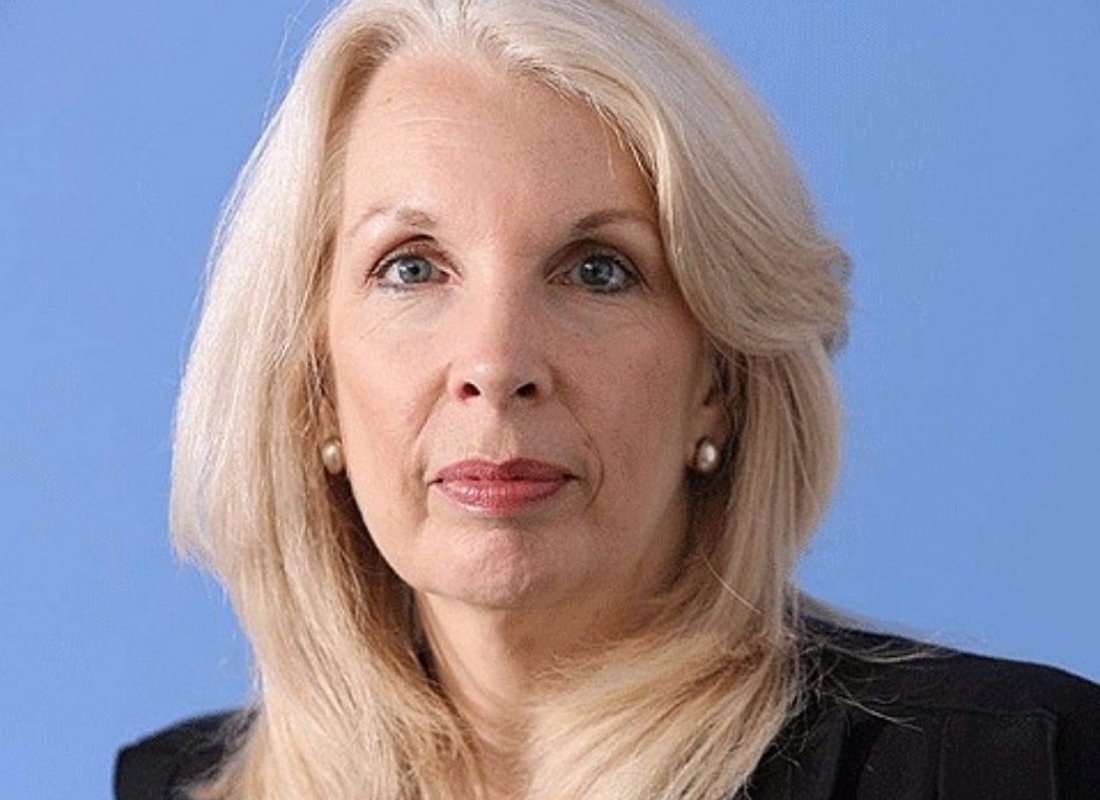
The China Exchange holds an enviable location amidst the hustle and bustle of Gerrard Street in Chinatown. Recently refurbished (formerly housing London’s central Telephone Exchange) it now plays host to exhibitions, performances (including a lunchtime recital programme delivered by musicians from the Royal Academy of Music), lectures and other events. The Prudential Series is broadly speaking a regular series of talks and discussions led by influential people from a variety of disciplines, several times a month. Katya Kazakevich went to hear one such talk, given by Amanda Nevill, Chief Executive Officer of the British Film Institute. This was in conversation with the Chairman of the China Exchange, the incomparable Sir David Tang.
Amanda started off by giving a little background to the BFI. It was founded in 1933, following the realisation that film had started making money in the US (as cheap entertainment for the lower classes). The founders of the BFI saw 'film' as a form of communication across both cultural and physical borders. It is even now one of only around a thousand organisations which hold a Royal Charter: it exists to promote the art of film and television.
The BFI's turnover is £1 million per annum, a sum of which goes towards funding independent cinemas and the annual BFI Film Festival. Film is more pertinent than ever before, particularly as it is now accessible through so many channels. The BFI hold the responsibility of looking after this fast-evolving art form.
Several strategic developments have been planned for the future:
1) Championing film education and developing new audiences
2) Taking care of film making and film makers
3) Looking after the BFI archive
1) Research has shown that when you present a diversity of films to young children, they are more than likely to develop into cinephiles. The BFI work with Interfilm to get film clubs into schools (this now includes 7,000 schools around the UK), seeding love for the art form. They are the biggest distributor of films in the country, even sending a regular reel or DVD to the film society on the Isle of Unst (in the northernmost part of Scotland) for the past 13 years.14% of the UK box office turnover is thanks to independent British film, but the BFI are also interested in foreign cinema, which serves to contextualise British cinema. The Institute is currently on a streak of reappraising forgotten and overlooked films. Recently, they teamed up with "Abandon Normal Devices", a cinema event outfit, to put on "2001 Space Odyssey" on a satellite dish during their Sci-Fi season of film. Eleven months ago saw the launch of the BFI Player (where one can see 60% of films for free) and the annual BFI London Film Festival acts as a launchpad for emerging film makers in the country.
2) The BFI's mission is to find talent wherever it lies. The BFI Film Academy scoops up children who have ambitions to work in the industry, consequently picking the top talent from the programme and sending them on a course. The BFI then follow these National Film and TV School alumni through their secondary schooling, and help them find the right path after they finish.
3) They hold the most significant archive of film and television in the world, having committed to digitalising 10,000 titles on the BFI Player since its launch (statistics show that three million films were watched within the first six weeks). "Britain on Film" includes geo-tagged films from every area in the UK.
More films are made here than in the US: Britain is a global centre for the art form. A co-production treaty was recently signed between the UK and China, launched by a Shanghai showing of a silent Hitchcock film with a newly commissioned score by a Chinese composer (both a cultural and an economic handshake). The BFI also gave a very early Chinese film from their archive back to the original authorities. Last summer, there was a huge celebration of Chinese cinema at the BFI Southbank.
At this point in the talk, the trailer for the recent Chinese season of cinema was shown, as well as some extraordinary footage from 1900s Shanghai, complete with Sikh police, two German soldiers and two European ladies on bicycles (this was the earliest known footage from China, ceremonially given back to the Chinese government earlier in the year by the Duke of Cambridge).
Someone asked whether there were any issues with the restrictions to incoming foreign films to China.Amanda commented that the size of the box office in China is very exciting - there are three cinemas opening a day, and it's fast approaching the scope of development in the US. Co-productions are regulated in terms of the release but don't count towards the quota of foreign films (the Chinese distributions department wants to protect Chinese language on film).
Another person enquired as to funding given out by the BFI. Amanda replied that the BFI have public funds, from which they take to help finance 20-25 projects a year (out of 500 applicants). There is a festivals fund available, and they're desperately trying to finance people who aren't already in London.
Amanda finished off by saying that the BFI Southbank was initially built as a temporary space, with the intention of moving on when a more suitable location is found. There is a site near the London Eye which they are hoping to acquire - they will need the planning permission and to raise enough funding by 2019. Exciting times ahead.
You can find out more about events in the Prudential Series at the China Exchange here.




.0af71f.jpg)
.ec8cc4.png)